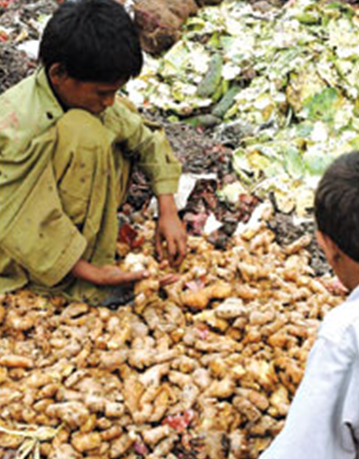Karachi: civic issues
This is a collection of articles archived for the excellence of their content. Readers will be able to edit existing articles and post new articles directly |
Karachi: Best city for expats
Best city for expats? Karachi tops list
June 2010
London: Angola’s capital Luanda topped this year’s Mercer Worldwide Cost of Living Survey as the world’s most expensive city for expatriates, with Tokyo in second spot and Ndjamena, Chad, in third.
Karachi in Pakistan was the least costly place for expats in a survey by the c o n s u l t i n g firm that covers 214 cities across five continents and measures the comparative costs of more than 200 items in each location.
For the first time, three African cities — Luanda, Ndjamena and Libreville in Gabon (7) — were among the 10 most expensive cities. Three Asian cities — Tokyo, Osaka (6) and Hong Kong (8) — were in the top 10, along with the European centers Moscow (4), Geneva (5) and Copenhagen (10). “Our cities are selected based on requests from our multinational clients,” Mercer senior researcher Nathalie Constantin-Metral said in a statement. The other most expensive cities in Europe were Oslo (11), Milan (15), London and Paris (both 17). The least expensive city in Europe was Tirana (200) in Albania. In the US, New York (27) was the most expensive, followed by Los Angeles (55). Washington, DC, ranked 111 and the least expensive US city was Winston Salem (197). REUTERS
Karachi: Market in a mess
By Aamir Shafaat Khan
One needs nerves of steel to enter one of Asia’s biggest vegetable markets, especially when it is raining cats and dogs. One can cover one’s feet by wearing long boots but one’s tolerance level should be enough to bear the pungent smell emanating from the garbage and filth lying on the so-called roads which one has to pass through while visiting the market.
This is not a single day, post-rain scenario caused by heavy downpour. The 100-acre New Sabzi Mandi (vegetable market) on Super Highway has been facing this problem from the time it was set up five years ago. And the authorities appear to be least bothered about the situation.
Whenever rains hit the city, consumers as well as vegetable dealers put on their long boots in order to wade through dirty passages. The respiratory and nervous systems of fruit and vegetable dealers might have got used to such situations. They don’t seem to understand the health hazards that are involved here. But it is really hard for vegetable consumers to undergo such an experience.
Trucks and vans that come from up-country take risky turns before reaching their destination within the market because of dangerous potholes and puddles on the so-called road network. The situation has become more dangerous after the recent heavy rainfall.
The Market Committee Karachi must have collected between Rs150 and Rs200 million in the last five years in the form of market fees and vehicle entry charges, besides pocketing Rs180-200 million as conservancy charges. But it seems that the big amount has been siphoned off by a group that has vested interests in the affairs of the market.
The market lacks a proper road network. Out of the 160 toilets planned for the area very few exist; and the ones that exist are in a pitiable condition forcing people to use roads and other places to relieve themselves. Encroachers are also active here. There is no proper sewerage and drainage system and the market does not have a natural gas facility. There is not even a proper facility for clean drinking water.
A vegetable dealer, Haji Shahjehan, attributes the sorry state of affairs to the lack of interest taken by the Market Committee since its inception. Many dealers, who had paid decent amounts to get allotment 13 years back, are yet to take possession. Several changes are being made in the map of the market and the committee people have rented out many places.
The solution to all these problems lies in setting up a market committee complying with the Agriculture Act 1939-1940 comprising 17 members (nine growers, six fruit and vegetable dealers and two representatives of the consumers’ body) to run daily affairs of the market. The chairman of the committee should be appointed from the above-mentioned 17 members.
In cities like Quetta, Lahore, Nawabshah, and Sukkur market committees act following the Agriculture Act. “I do not know as to where the huge money collected from the vehicles’ entry point and conservancy charges are being spent as there has been no infrastructure development undertaken in the vegetable market,” Haji Shahjehan says.
As many as 1,000 trucks loaded with vegetables and fruit, worth Rs90 to Rs10 million, make their entry into the Sabzi Mandi gate daily from up-country. All the stuff is not meant for the consumption of Karachi’s 160 million people. Traders divide the daily huge arrivals for export purposes, leaving the rest for the mega city.
Haji Shahjehan claims that between 25,000 and 30,000 people are employed directly in the 3,000 shops which are functional out of the total 5,000 shops. More than 10,000 labourers and workers are engaged in the handling of vegetables and fruit. The majority of workers belong to Dir Maidani, Bajore and Kashmir.
Whenever an economic activity gets underway it leads to the opening of parallel activities and the Sabzi Mandi is no exception. Many people, including women and children, earn their livelihood by lifting fruit and vegetables which fall off during their loading and unloading from vehicles. They pile up stocks in bags and re-sale them in parallel small outlets within the market.
It’s time the authorities concerned looked into the matter and made the vegetable market a place worth visiting.


